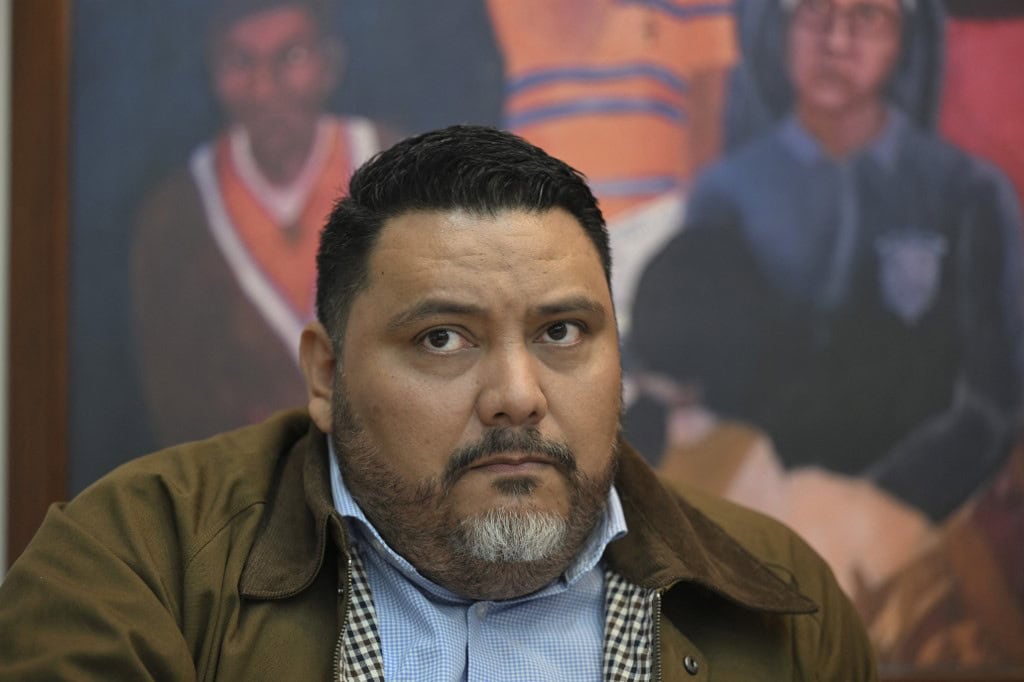The prestigious NGO Cristosal, which investigates corruption cases and denounces human rights violations in El Salvador, announced Thursday that it has been forced into exile due to what it called the government’s growing repression against humanitarian activists under President Nayib Bukele.
Cristosal, a strong critic of Bukele’s security policies, reported being subjected to harassment, surveillance, and defamation. The organization also provides assistance to families of 252 Venezuelans deported by the United States in March and imprisoned in a mega-prison in El Salvador built for gang members.
“In the face of this authoritarian consolidation, we were forced to make the painful decision to suspend our operations in El Salvador,” read a statement distributed by Cristosal activists at a press conference in Guatemala City.
Founded by Anglican bishops 25 years ago, the NGO said it will continue its work from offices in Guatemala and Honduras to protect its team and “keep the defense of human rights alive.” Cristosal’s decision comes two months after the arrest of Salvadoran attorney Ruth López, head of its anti-corruption unit, and following the enforcement of a new “foreign agents” law in June. The law, similar to those in Russia and Nicaragua, gives the government power to monitor NGOs.
López was arrested on May 18 on charges of illicit enrichment by a government-aligned prosecutor’s office. Amnesty International declared her a “prisoner of conscience.” “This is not an isolated case, but part of a broader intimidation strategy,” the statement added. “Ruth is behind bars for demanding transparency and reporting corruption. Like her, many others have been criminalized or forced into exile for their work.”
Under the “foreign agents” law, rejected by international human rights organizations, NGOs must pay a 30% tax on funds received. Cristosal’s main funding comes from donations. “It’s an authoritarian tool. It imposes discretionary sanctions, punitive taxes, and state surveillance to censor and punish independent organizations,” Cristosal said. However, it stated that it will not renounce its legal status in El Salvador.
It can lead to prison
The NGO, which had about 30 staff members in El Salvador, said the country “has ceased to be a state governed by law.” “Expressing an opinion or demanding basic rights today can lead to imprisonment. Freedom of expression, peaceful protest, and civic participation have become punishable and restricted,” the group said.
Over 40 Salvadoran journalists have gone into exile in recent months, according to the Association of Journalists of El Salvador (APES). Among them are prominent reporters from the digital newspaper El Faro, which accused Bukele of striking a deal with gangs before launching his crackdown in 2022—an allegation the president has strongly denied.
Harassment takes different forms. In late April, police arrived at Cristosal’s headquarters, an old school building in Santa Tecla near San Salvador, and photographed journalists’ vehicles before a press conference on the detained Venezuelans.
Other recent arrests of government critics include environmental lawyer Alejandro Henríquez, constitutional expert Enrique Anaya, and community leader José Ángel Pérez. A recent survey by the Jesuit-run Central American University (UCA) found that six out of ten Salvadorans fear criticizing the president or his government, worried it may result in detention or other negative consequences.
Bukele was re-elected in February 2024 thanks to the popularity of his anti-gang campaign, which has sharply reduced criminal violence. The crackdown, in effect since 2022 under a state of emergency, has drawn criticism from human rights groups like Cristosal for suspending due process, allowing arrests without warrants, and restricting civil liberties.






